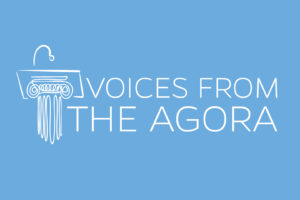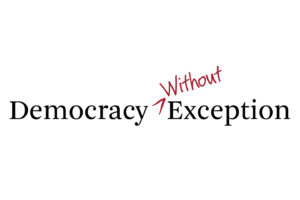
As a predoctoral fellow in the SNF Agora Academy, Meron Tamene explores the complex dynamics of international labor migration, focusing on domestic workers from Ethiopia and the Philippines in the Middle East. She investigates how home governments support their overseas workers, probing questions about migrant rights and state responsibilities. Her work embodies the institute’s mission to strengthen democracy through rigorous scholarship and engaged research.
Meron’s research centers on kafala, a legal system used in Jordan, Lebanon, and all Arab Gulf states except Iraq. It governs the relationship between migrant workers and their employers by requiring workers to be sponsored by an individual or company. This arrangement creates power imbalances and can lead to exploitation. Because these sponsorships fall outside the oversight of labor ministries, migrant workers are typically denied the protections of labor laws. As Meron explains, “kafala takes away independence and freedom from the worker. It’s very infantilizing.”
Against this backdrop of structural vulnerability, Meron noticed a troubling disparity: The support workers received from their home governments varied significantly. Ethiopian workers often felt abandoned when seeking repatriation or aid, while their Filipino counterparts received more consistent support. This observation shaped her research question: Why do these variations in government support exist, and what are their consequences for vulnerable workers abroad?
As the daughter of Ethiopian immigrants, Meron grew up immersed in discussions about migration and its complexities. Through her parents and their community connections, she heard firsthand stories of relatives and friends who had worked abroad temporarily, including in Gulf countries. These stories gave her research a sense of urgency and personal meaning beyond academic inquiry.
The SNF Agora Academy predoctoral fellowship focuses on developing recent college graduates’ ability to explore questions of global democracy in a multidisciplinary way, and Meron’s work intersects by examining issues of human rights, labor, and civic engagement. SNF Agora’s unique approach reshaped her understanding of migration. “Being surrounded by political scientists, sociologists, and anthropologists has allowed me to understand that solely focusing on quantitative data can be dehumanizing,” she reflects. This perspective shift encouraged her to look beyond economics and policies to see the human dimensions of migration.
Meron has worked with a partnership of SNF Agora faculty and fellows (Lilliana Mason, Consuelo Amat, Scott Warren) to study pro-democracy conservatives in the Trump era, transcribing interviews with politicians and nonprofit leaders. This work gave her hands-on experience with diverse interview techniques and qualitative methods.
An important moment in Meron’s methodological development came during a qualitative methods course with Sarah Parkinson, faculty member in the Department of Political Science, who had conducted ethnographic fieldwork in Lebanon. Parkinson shared her experiences building deep connections with research subjects and navigating the real-world challenges of collecting data in complex situations. “It’s challenged me to take a step back,” Meron reflects. “It helped me develop my theoretical framework, but the real challenge has been stepping outside it and focusing on how I’m going to collect the data.”
Meron’s distinctive approach centers on seeing the humanity in her research subjects. Rather than viewing migrant labor solely through policy lenses or economic impacts, she considers the migrant’s lived experiences. “I don’t want to do research that focuses on the victimization of these women because that’s only part of their story,” Meron explains. “They are strong and resilient and trying to fight back.”
Her approach to advocacy has also evolved during her time at SNF Agora. While previously engaged in direct community work, she now sees research as a powerful advocacy tool.
“It’s shown me a different way to be an advocate,” she reflects. “You can contribute to a cause through the work you write and publish.”
When asked if she would recommend SNF Agora’s predoctoral fellowship to others, she answered without hesitation: “Yes, I would. It has been challenging in really beneficial ways.” Beyond academic growth, the fellowship provided unexpected personal connections. “I feel like I’ve gained a brother and sister through this program,” she says, referring to her cohort-mates Josiah Jacobs and Maya Jenkins.
Over two years, Meron has sharpened her research focus and deepened her confidence in an approach rooted in human stories. In her view, migration research must move beyond economic frameworks to recognize the humanity of those who move across borders. “Migration isn’t only important because of the economic benefits,” she reflects. “It is important because people deserve to be safe and supported and live fulfilling lives.” Meron’s research is a powerful tool for understanding and giving voice to those whose stories might otherwise remain untold, and lifting more voices is an important part of SNF Agora’s work to advance pluralistic democracy.

